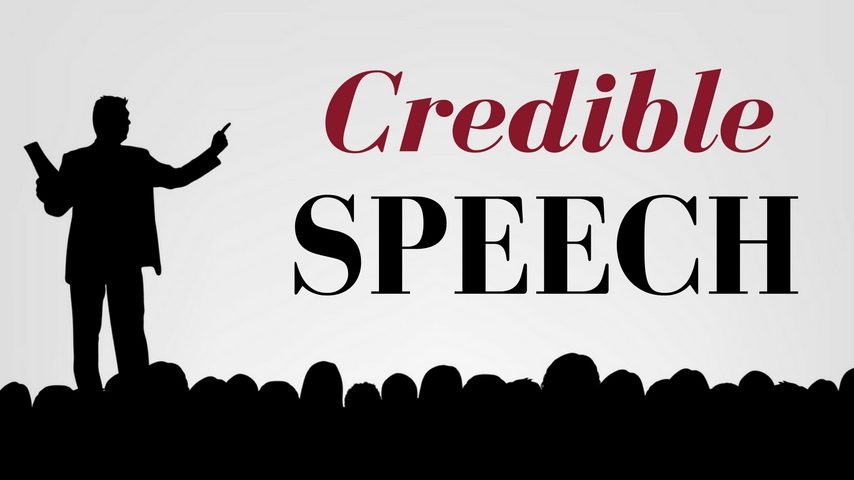
 You may be called upon to speak in a situation where the audience does not know you. Your credentials that brought you to that speaking engagement may be the only connection some members of the audience have with you. For the rest, your brief introduction may be all they know about you. Or another challenging speaking situation is when you have been chosen to provide unpleasant information to the organization, such as cutting back on workforce.
You may be called upon to speak in a situation where the audience does not know you. Your credentials that brought you to that speaking engagement may be the only connection some members of the audience have with you. For the rest, your brief introduction may be all they know about you. Or another challenging speaking situation is when you have been chosen to provide unpleasant information to the organization, such as cutting back on workforce.
In either of these situations, developing credibility as you speak can be critical to the success of your presentation. Here are some ways you can enhance your credibility as you speak.
Act in ways consistent with the message of your presentation. Show concern in tone of voice and facial expression when talking about a difficult issue. Acting disinterested or unconcerned when presenting bad news can offend your listeners.
Be well prepared. Your audience has given you time and an opportunity, and audience members deserve to hear your best effort. That only comes through careful preparation. If the audience can tell you didn’t prepare for them specifically, they will feel betrayed and won’t respond positively to your message. Start preparing several days or weeks before an important presentation.
Base your conclusions in your presentation on clear evidence. Support your assertions with relevant facts, statistics, and testimony. Keep track of your sources and be ready to produce them if asked. Don’t make assertions you can’t support or justify. Whatever support you use should satisfy all reasonable, rational people. Each major point should show a variety of evidence. If that is not the case, eliminate the point or, if it fits, place the evidence with another point you make.
Choose topics that are consistent with your personal beliefs. Pick topics and ideas important to you that you live out daily. You might be able to craft effective speeches advocating views you do not feel strongly about. But often it is difficult to hide feelings, and chances are the audience can tell when there is lukewarm interest in the point you are making. In choosing material for your presentation, consider how strongly you feel about the point or support. Edit out weaker content.
Finally, respect the time of your audience. Know what time you are expected to finish—and finish at that time. It is an insult to your audience and an abuse of your opportunity to speak to keep them beyond the allotted time.
These ethical principles can be condensed to one “golden rule” of speaking: Treat each audience member as you would like to be treated if you were in the audience.

1 Comment
Sound advice.
Thanks.
Tom Hailey